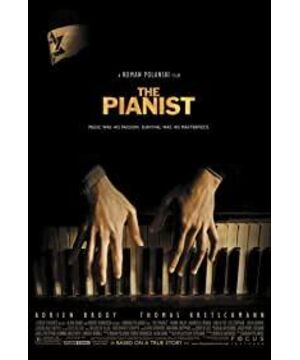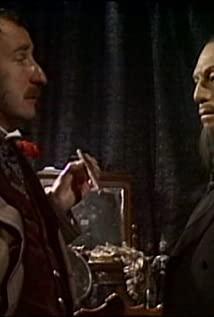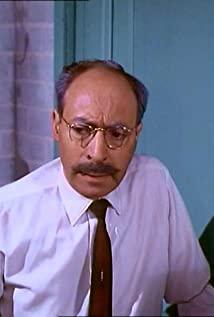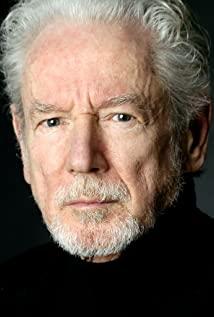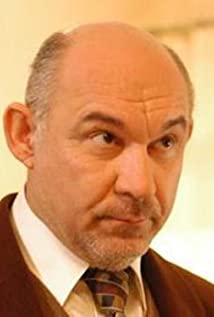The director used the skillful lens language to tell a painful story in human history. It is true and delicate. Like many movies depicting the Jewish people in World War II, "The Pianist" also maximizes the bloody violence of the Nazis against the Jews. The screenwriter is adapting the script. Once questioned whether the director’s murder scene was too bloody, Polanski replied: You didn’t look at my home in California last summer. I know what bloodshed is. The director’s personal experience and what he saw and heard made him only express his condemnation and hatred of the war and his sympathy and compassion for the Jewish people with a realistic creative attitude. Life experiences are used to interpret the theme, highlighting the great human nature in the disaster, such as the Germanic couple who helped the pianist from beginning to end, the care of the pianist by the unknown brothers in need in the concentration camp, and the German Nazi officer at the end of the film The rescue of the pianist shows the director’s humanitarian care. He has a profound experience and a new grasp of the human shining points of kindness, sympathy, compassion, and justice in the depths of human nature. He has a strong grasp of the big and small characters in the film. Express the rich inner world. The film uses a lot of close-up shots and close-ups to show the protagonist’s inner humiliation, resentment, tolerance, and yearning for freedom and art. The soft halo of the lens gently touches the melancholic face of the pianist. He sometimes nervously and calmly pays attention to the horizontal road. Sometimes I patiently watch the life breaking in an instant, and sometimes I want to listen to the guns outside the window like a police dog. The film uses close-up shots many times to show the protagonist’s smart fingers beating freely on the black and white keys like a wizard. The wonderful music melody slowly floats, flooding the eardrums of the audience and shaping people's hearts. Our pianist was elegantly immersed in the art of piano, but all the beauty ended in a sudden explosion, which opened the prelude to the cruel war. The warm people began to argue fiercely for hiding money. But who knows that it is still happy to be able to argue like this. After being forced to leave the original place of residence, the real disaster began, and the love of the pianist passed away with the wind. Facing the high walls, the unreasonable killing, the hunger, and the Nazi crimes, but there is nothing he can do. The thin, grim and melancholic actor who plays the pianist perfectly shaped this role. He used to peer into the world with a depressed and calm look. The audience followed the protagonist’s perspective and saw the elderly woman who kept looking for her husband on the street; the child who was dragged out by the pianist from a hole in the wall but was dead; that one just asked where to go. The innocent woman who was killed. There are many unforgettable bitter scenes in the film. For example, at the beginning of the film, the Jews who had just been rushed to the concentration camp were in the German soldiers. Under the whip, they laughed and played cheerful music. What was even more unacceptable was that the German soldiers picked out an extremely slender and tall young and beautiful woman from the crowd to dance with a short and dark middle-aged man. The wife danced with a little boy and asked them to dance in a cheerful rhythm; it is heinous that the disabled elderly who refused to stand up and bow to the Germans were thrown out of the window by the wheelchair upstairs. Died on the road; a young woman nestled next to her husband in the concentration camp square muttered to herself: "Why should I do that? My child, my child." It turned out that in order to avoid the German Nazi search, the woman covered her and cried. The yelling baby, as a result, the child suffocated to death, and the woman fell into deep self-blame and became half crazy and half stupid. These recorded scenes aroused the anger of the audience. Of course, in the film, the director condemned the cruel and inhumane acts of fascism on the one hand; on the other hand, he praised the cruel, kind and soft feelings of the suffering Jewish nation, and used moving details to express their pursuit of a free and happy life. , The pianist’s professor father took out all the 20 yuan to buy a piece of candy and carefully cut it into six pieces. Everyone held one piece in their mouths. At this time, the camera passed everyone’s face and disaster was coming. , The family still gathers together tightly, using a piece of candy to relieve the heavy depression, and at the same time, it is also a warm memory of a happy life. It is a shocking scene. On New Year's Eve, the Jewish coolies under the whip sang New Year's carols cheerfully with their heads high. Although they were forced to sing under close surveillance, they saw no sadness and hope, giving people endless power. In the hiding place, the pianist accidentally found a piano. Although he could not make a sound, he dangled his fingers on the keyboard to play as much as he could, sinking into the pure and beautiful world of art, like the sound of nature. Just like the opening line of "The Pianist": "Music is the passion of his life, and survival is the masterpiece of his life." The pianist uses music to fight against power in silence.
View more about The Pianist reviews


